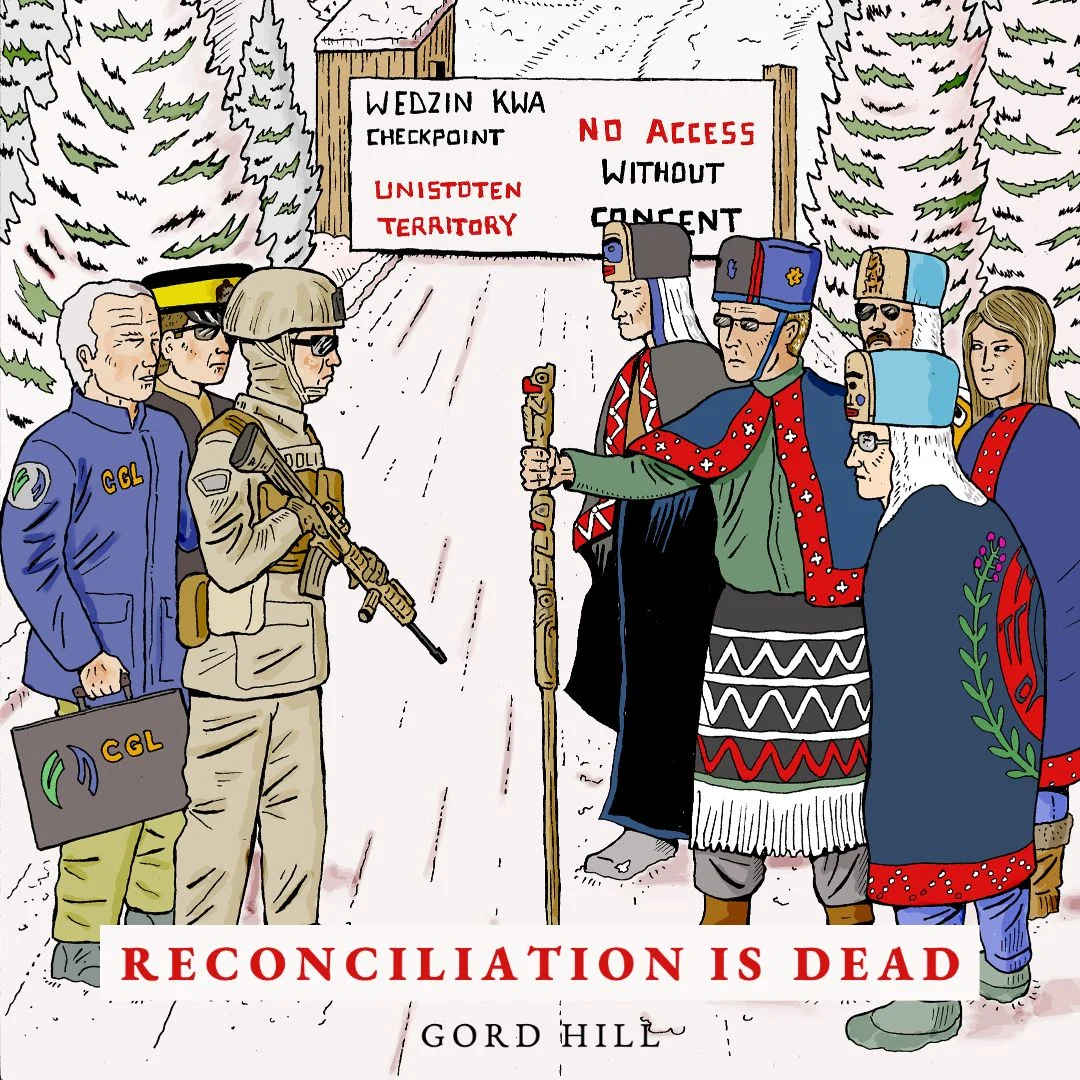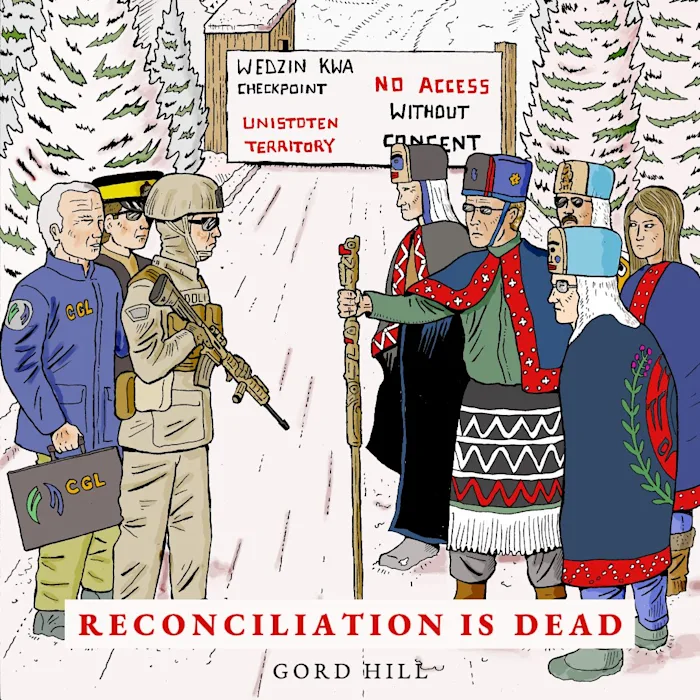Quarantine Letter #5: Unreconciled
Ron Sakolsky
Stop blaming me, accusing me, stalking me. Working yourselves into an anti-viral paralysis. All of that is childish. Let me propose a different perspective. See me as your savior instead of your gravedigger. You’re free not to believe me, but I have come to shut down the machine whose emergency brake you couldn’t find. I have come in order to suspend the operation that held you hostage. I have come in order to demonstrate the aberration that normality constitutes. Ask yourselves how you could find it so comfortable to let yourselves be governed. Don’t let those who’ve led you to the abyss claim to be saving you from it: they will prepare for you a more perfect hell, an even deeper grave. Thanks to me for an indefinite time you will no longer work, your kids won’t go to school, and yet it will be the opposite of a vacation. Vacations are the space that must be filled up at all costs while waiting for the obligatory return to work. I render you idle. Use the time I’m giving you to envision the world of the aftermath in light of what you’ve learned from the collapse that’s underway. The disaster ends when the economy ends. The economy is the devastation. — “What the Virus Said”
Just when I was feeling most elated about prospects for the future given the strength of the Indigenous resistance sweeping Canada in early 2020, the coronavirus arrived on the scene with whiplash-inducing force to upstage everything in its deadly path unexpectedly shutting down whatever parts of the Canadian economy had not already been intentionally shut down by the Wet’suwet’en land defenders and those involved in solidarity actions that had immediately preceded the spread of the disease. Rather than framing The Virus exclusively within the kind of nightmare scenario that is typically associated with the mainstreaming of the term “surreal” (as if all there ever is to surrealism’s critique of reality is this dark side), I want to instead illuminate the surreal possibilities for social transformation that can be revealed by creating a surreal (rather than literal) analogy between the contagion of the virus and the contagion of revolt.
Starting in February of this year the appearance of a widespread Indigenous uprising on the stage of Canadian history swiftly moved the realm of the surreal from dreams of radical transformation to the direct action undertaken to bring it about. Railways, highways and ferries were blockaded, provincial legislatures, government administrative offices, banks and corporate headquarters were occupied. For many inconvenienced Canadians, such actions as these were considered to be unacceptable even though they would prove to be only a fraction as disruptive as the more authoritarian forms of state control that would later shelter under the legitimacy of saving us from The Virus.
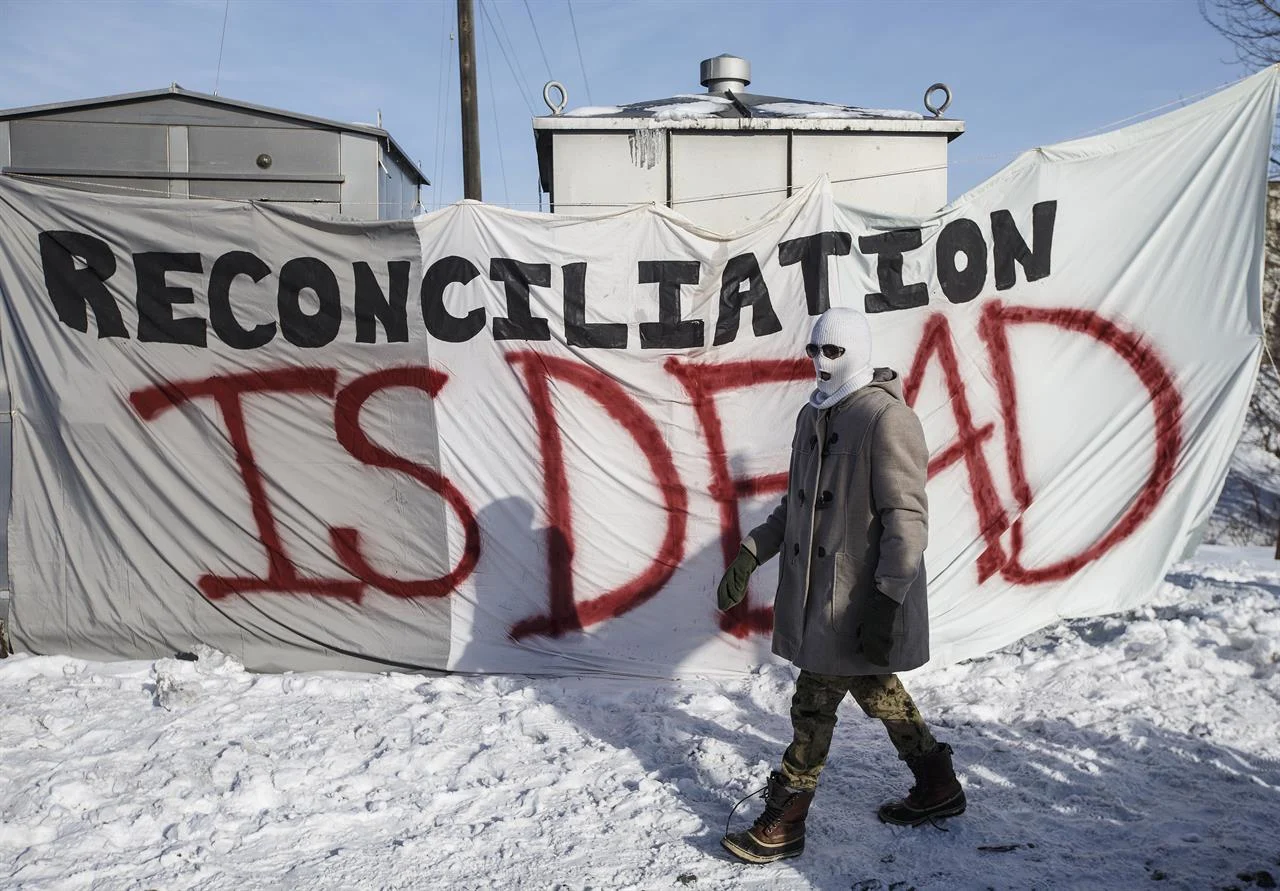
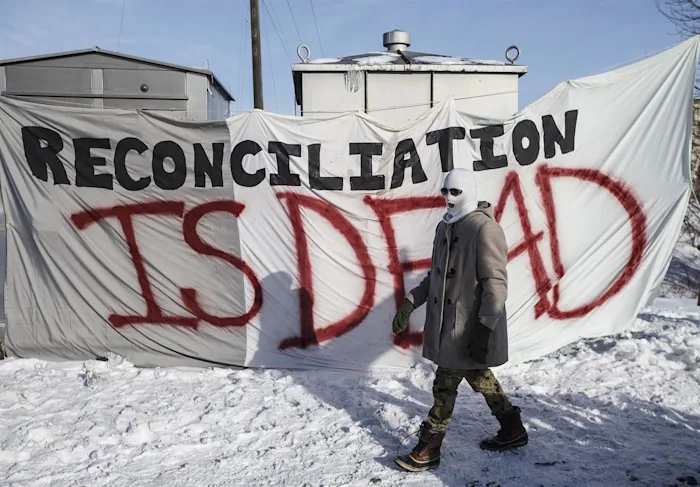
Though the immediacy of the COVID-19 pandemic would quickly overshadow the earlier Indigenous revolt in the public eye, it is now evident to many that the smiley-faced mask of Canadian colonialism has been pulled off to reveal a state that in spite of its professed human rights and climate change awareness rhetoric continues to have no compunctions about invading Indigenous territory without consent to build pipelines for fracked natural gas and tar sands oil because of what it considers to be in the best interests of the almighty economy. As Tawinikay (aka Southern Wind Woman) has written, “If only one thing has brought me joy in the last few weeks, it began when the matriarchs at Unist’ot’en burned the Canadian flag and declared reconciliation dead. Like wildfire, it swept through the hearts of youth across the territories. Out of their mouths, with teeth bared, they echoed back: reconciliation is dead! reconciliation is dead! Reconciliation was a distraction, a way for them to dangle a carrot in front of us and trick us into behaving. Do we not have a right to the land stolen from our ancestors? It’s time to shut everything the fuck down”.
Just as Indigenous peoples have demanded their land back in rural areas while pronouncing the false hope of government-brokered reconciliation to be dead, the systemic dislocations to the economy brought on by the coronavirus have led urban anarchists to address fundamental land issues by calling for rent strikes. But why stop there? In response to the devastation associated with The Virus, we have heard calls for the cessation of not only rent, but mortgage and utility payments, even the cancellation of debt itself, the end of wage slavery, and demands for the cessation of arrests for minor offenses, the release of prisoners who have committed non-violent crimes, or flat-out prison abolition. As surrealists we might ask ourselves what other noxious aspects of reality might be called into question and transformed by beginning to imagine what might exist in their place.
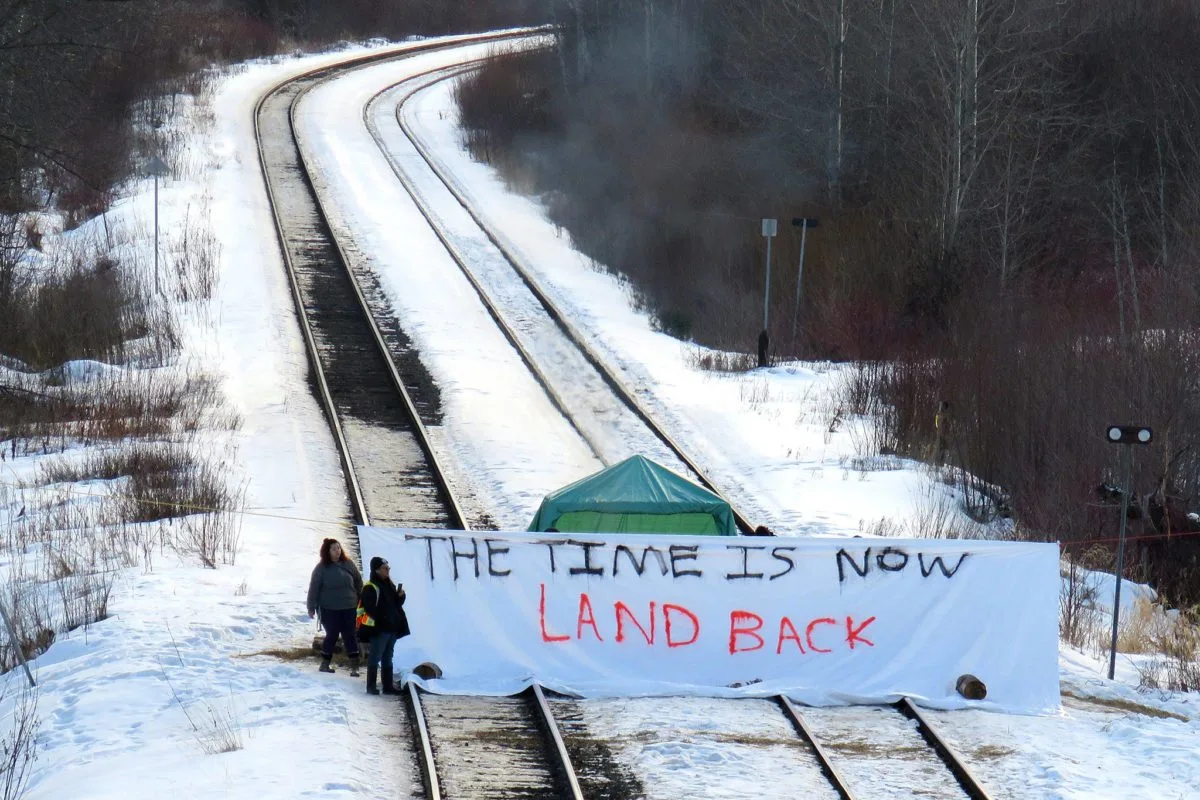
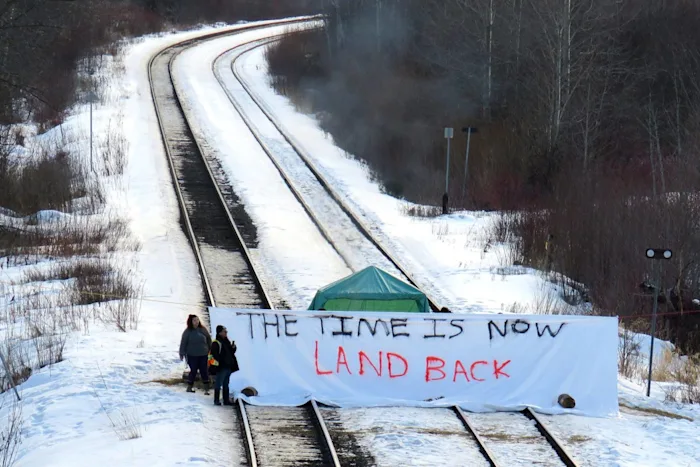
Where I live in British Columbia, resource extraction has always been the name of the game, but the emergence this year of a widespread oppositional network ranging from “land back” Indigenous warriors to elder traditionalists and from Extinction Rebellion activists to anarchist insurrectionaries has been heartening. Together, this multi-pronged force disrupted business as usual in solidarity with Unist’ot’en and Wet’suwet’en land defenders, and threatened to bring the Canadian economy to a grinding halt. This time growing numbers of Indigenous peoples were not willing to be bought off by corporate bribes or mollified by a legal system that has never done anything but pacify, brutalize, or betray them in the process of stealing their land. This time people fought back in droves against the forces of colonial law and order. This time the air was alive with a spirit of refusal and rebellion with one action building upon another in a burgeoning movement that could not be stopped. When one railroad blockade would be busted by the Royal Canadian Mounted Police (RCMP), another would spring up in its place elsewhere extending the frontlines of the battle all across the continent.
As I write, the wheel of change is still in spin. What the final outcome will be in relation to either the COVID-19 virus or the virus of revolt is unknown, especially in relation to the predatory nature of the times in which we live where the emphasis is often placed on the institution of statist forms of social control rather than grass roots mutual aid efforts in relation to the immanence of societal upheaval. Even though the pandemic has supposedly shut down the provincial economy with lightning speed, Coastal Gas Link’s pipeline construction efforts with their invasive industrial “man-camps” have still been allowed to continue to exist on unceded Wet’suwet’en territory with RCMP logistical support, thereby callously endangering the health and safety of the Indigenous inhabitants. It’s abundantly clear whose lives matter to the Canadian government and whose don’t. Consequently, it will remain very hard for the authorities to put the genie of Indigenous rebellion back in the colonial bottle in the future. In the meantime, we are mourning what of value we’ve lost from the past, celebrating what we’ve created in the present, and still demanding the impossible.
